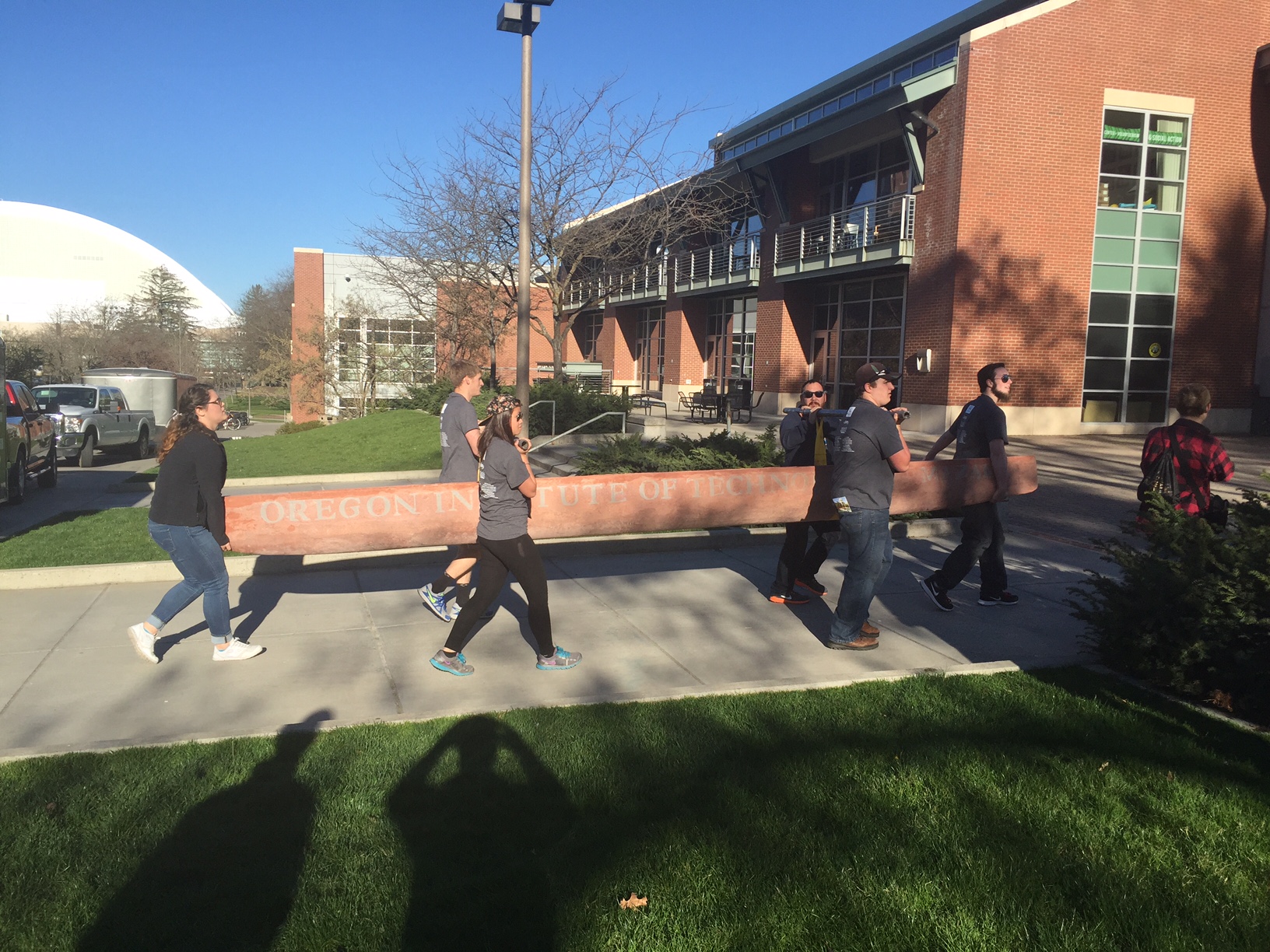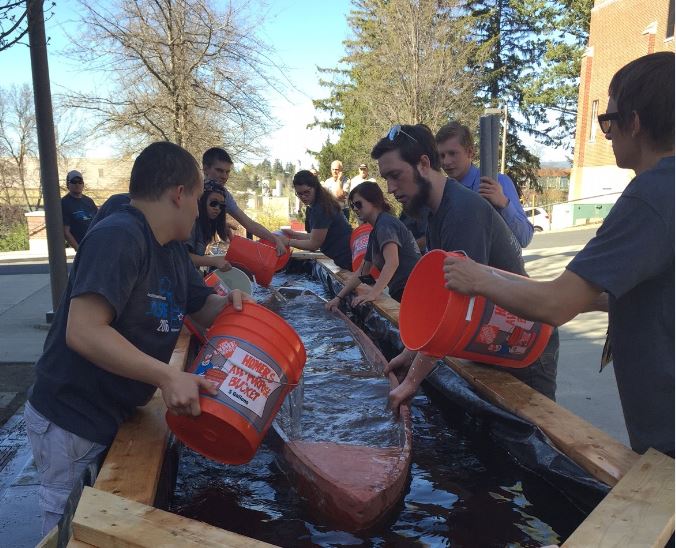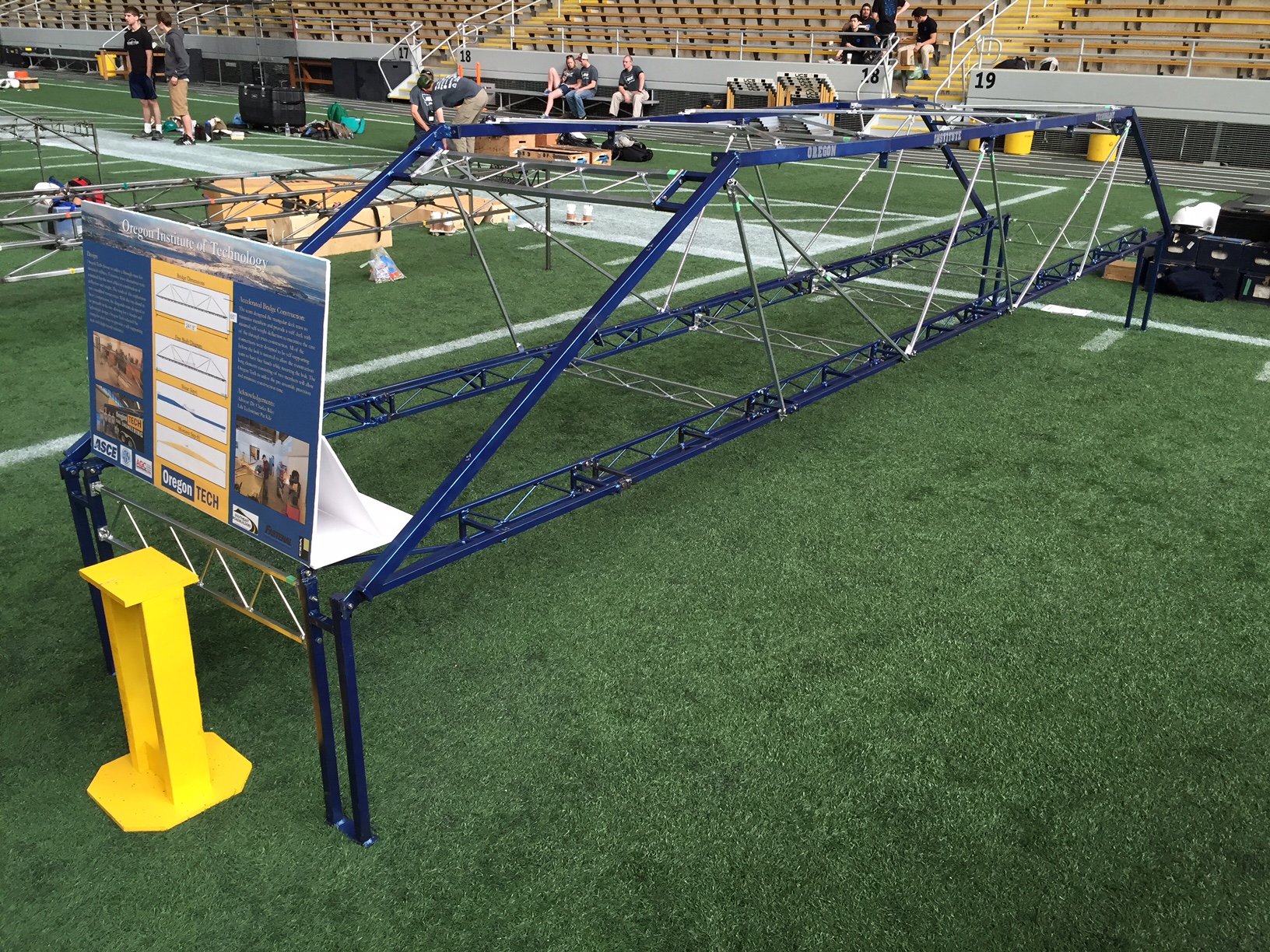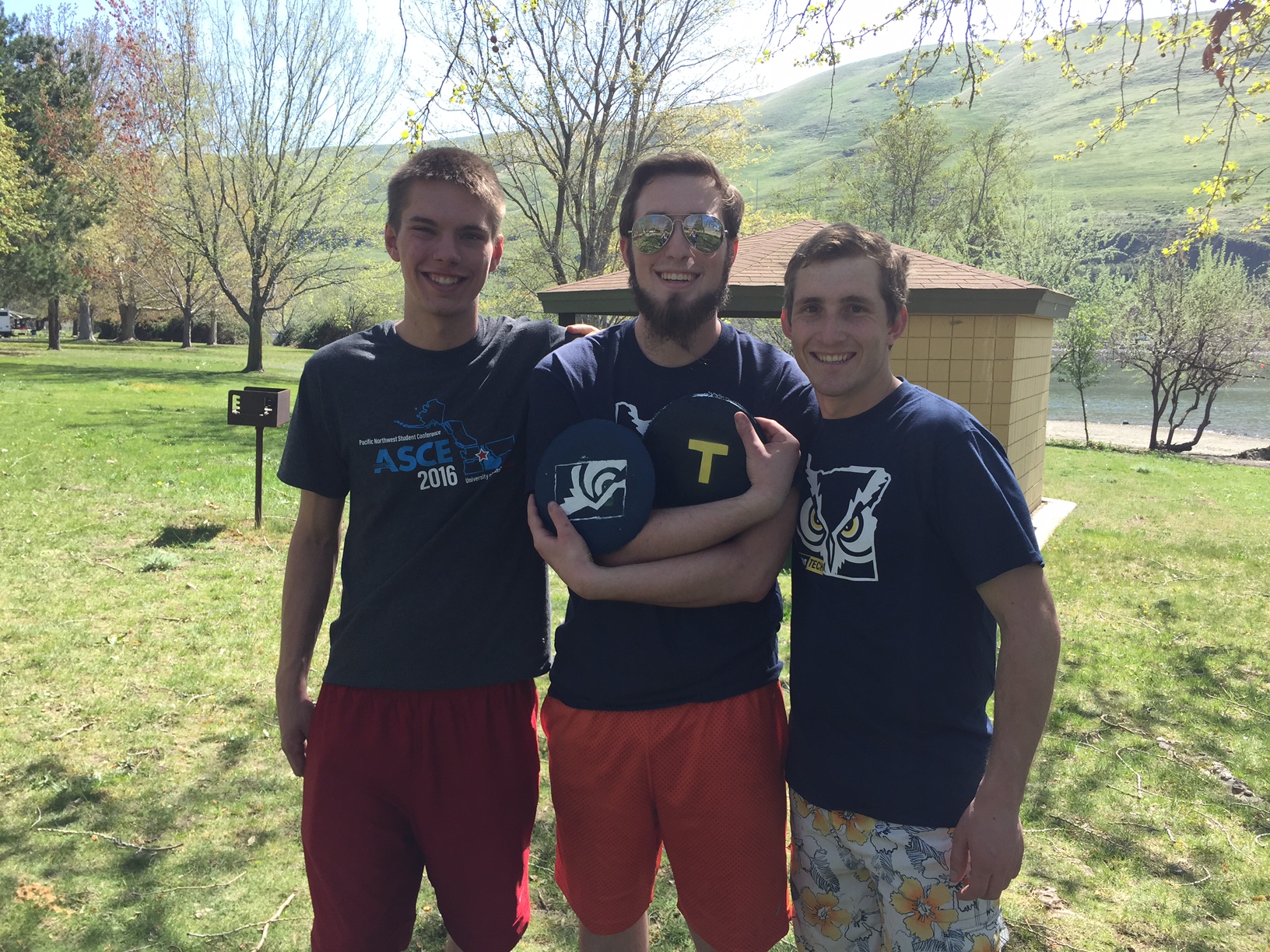As part of the American Society of Civil Engineers (ASCE), 21 students from Oregon Tech’s Civil Engineering program traveled to the University of Idaho in Moscow to participate in the 2016 ASCE Pacific Northwest Concrete Canoe and Steel Bridge Student Competition on April 7-9.
Oregon Tech’s student organization, along with professors Dr. Matthew Sleep and Dr. CJ Riley, participated in events with college chapters from Alaska to Montana at this three-day event. The competition requires civil engineering students to design and fabricate a steel bridge to hold 2500 pounds and construct a concrete canoe that floats and can support paddlers to compete in a race.
The competition gives students applied experience, an opportunity to combine skills and creativity, as well as training in teamwork, communication, and project management skills. The competition challenges students' knowledge, creativity, and stamina, while showcasing the versatility and durability of their projects.
The concrete canoe team placed 6th overall out of 14 teams, impressive for a program of this size against schools such as University of Washington, Oregon State, Idaho State, University of Portland, Seattle University, Portland State, Boise State, and more. Scoring of the competition is divided into four equal parts: the final product, a presentation, a paper and the race results.
“The concrete canoe team has been working since last spring quarter (2015),” said Dr. Matthew Sleep, Assistant Professor in Civil Engineering at Oregon Tech and the concrete canoe advisor. “This year students from the Manufacturing and Mechanical Engineering and Technology Department helped use a CNC machine for the canoe mold. The team also used a new inlay design for placing the canoe team name, ‘Mazama.’ Volcanic ash from the eruption that formed Crater Lake was used in the concrete mix. The students learned how to problem solve and work collaboratively as a team. I am extremely proud of our students.”
The steel bridge team produced a great design this year but just missed placing in the competition as they were disqualified for a leg too far from vertical during the build. Bridge criteria judges stiffness, construction time, and weight.
“The group that attended the ASCE PNWSC this year represented us incredibly well,” shared Dr. CJ Riley, Associate Professor in Civil Engineering and ASCE Student Chapter and steel bridge faculty advisor. “Professional, collegial, and upbeat, they fought hard and accepted their placements gracefully. I continue to be impressed with the quality of the team coordination and final products from the concrete canoe and steel bridge teams. Each performed above average and continued a trend that should get us to nationals in future years.”
Dr. Riley also noted, “Marisan Grace Elisabeth, from Indonesia, won second place in the technical paper with an impassioned presentation about the technical and ethical challenges of working in Indonesia after being educated in the US. This is the first time Oregon Tech has placed in the technical paper since I have been here. It is a wonderful accomplishment for Marisan and Oregon Tech.”
Oregon Tech student attendees:
Chris Wrenn
Steven Reed
Elizabeth Cox
Noah Nieman
Austin Deanhardt
Garrett Stephens
James Roberts
Olivia Torres Stagner
Brittany Young
Jordan Preston
Adam Soto
Kevin Baker
Ryan Brooks
Nicole Buck
Austin Nickerson
Justin Hancock
Marisan Elisabeth
Samuel Garber
Michael Sparks
Andrew Wixon
William Perry
The teams also participated in volleyball and concrete Frisbee, which they placed first and third, respectively, and had the longest Frisbee throwing distance of 185 feet. The ASCE PNWSC will be hosted at Oregon Tech in 2018, which will allow students, faculty and friends from around the region to come together for the event in Klamath Falls.
###







